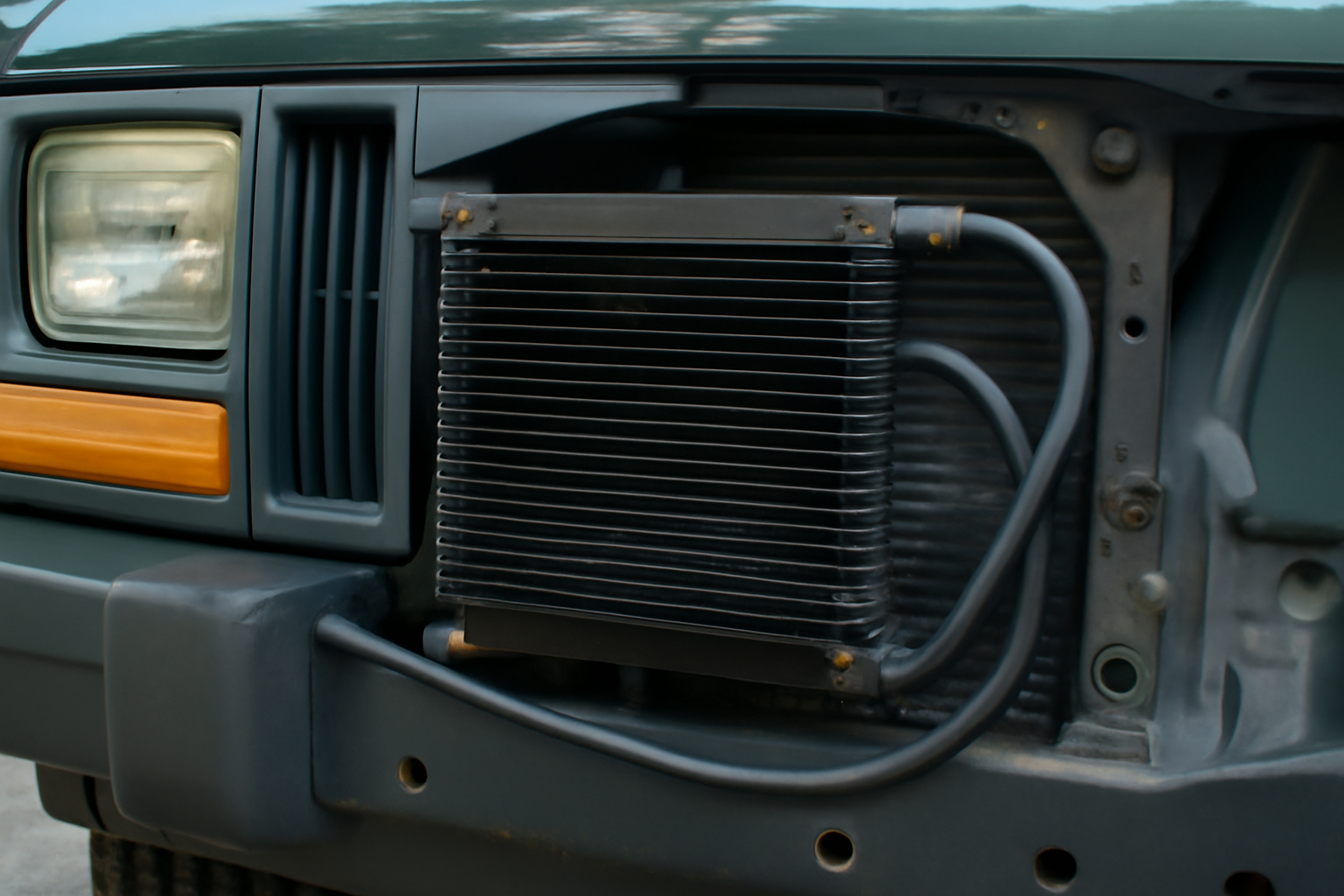When mounting or changing a transmission cooler on a radiator of a 1998 Jeep Cherokee, the right thread size should be employed to avoid damage and leaks. A proper thread type achieves a leak-tight, secure link between the cooler and radiator, which is best for transmission performance. Many Jeep Cherokee owners wonder, “What thread for 98 Jeep Cherokee trans cooler on radiator?”
The use of the wrong thread size can result in costly repairs and a non-efficient cooling system. In this article, we are going to give you the right thread specifications for your 1998 Jeep Cherokee and how to properly install it.
Comprehending the Significance of Correct Thread Size
Proper selection of the correct thread size is crucial in forming a good bond between the radiator and the transmission cooler, preventing fluid leakage, and ensuring the cooling system works optimally. If an overly large or small thread size is used, the sealing might not be effective, which can result in transmission fluid leakage or even system failure.
These leaks can potentially destroy the radiator or other components of the transmission system and cause overheating or other serious issues.
Therefore, learning and selecting the proper thread size is crucial in upholding the efficiency and lifespan of your 1998 Jeep Cherokee cooling system.
Standard Transmission Cooler Thread Sizes
The size of the thread on a transmission cooler adapter on a 1998 Jeep Cherokee typically follows industry standards, and it is critical to ensure compatibility. Most transmission cooler lines on vehicles such as the Jeep Cherokee use either NPT (National Pipe Thread) or compression fittings. Both standard thread sizes on these fittings are 1/8-inch NPT and 3/8-inch compression.
These are standard sizes for use in autos because they can create a secure seal and prevent leaks. Note that while these are standard sizes, there may be some variance depending on the model and aftermarket parts on your vehicle.
Thread Spec for the 1998 Jeep Cherokee Radiator
For the 1998 Jeep Cherokee, transmission cooler fittings typically utilize a 1/8-inch NPT (National Pipe Thread) or 3/8-inch compression fitting, but make sure to check double based on your particular model. The 1/8-inch NPT is frequently utilized for lesser lines, while the 3/8-inch compression fitting is employed for larger cooler lines. These are paramount in achieving a proper fit and minimizing leaks upon installation.
To find out the precise thread size for your Cherokee, it is always best to consult the owner’s manual or get in touch with a qualified mechanic, especially if your radiator or cooler has been replaced with aftermarket parts.
How to Take the Thread Size
Accurate measurement of thread size is required before purchasing a new replacement fitting or cooler to ensure compatibility with the radiator. To take the measurement, use a thread pitch gauge or caliper to determine the thread count and diameter. Diameter is taken across outer edges of threads, and pitch is the distance between thread peaks.
If you are not sure of the measurement, you can take the original part to the auto parts store to reference. You have to use the proper thread size so that the transmission cooler lines are compatible and function well.
Tools Required to Install Threads
For you to install the proper transmission cooler thread, you will need some basic tools, which include a wrench, thread sealant, and even an adapter in case you want to replace the threads. You can safely tighten the fittings with an adjustable wrench without damaging them by overtightening them. Thread sealant is required to make the area watertight to ensure leaks do not develop after a period of time.
In some situations, an adapter may be required if the threads in position will not fit standard sizes. Also, the use of a thread tap and die set can assist with hole cleaning and re-threading should they need to offer a smooth fit.
Troubleshooting Common Issues
If you face issues such as leaks or incorrect fitting of the cooler, you must diagnose thread size, fitting, or installation-related issues. Leaks may indicate improperly sealed threads or the usage of the wrong thread size. Cross-refer the thread type (compression or NPT) and verify that the right size is used.
Additionally, check the threads for corrosion, wear, or damage that might result in a bad connection. If the cooler doesn’t fit properly, it may be necessary to use an adapter or replace worn-out fittings. Time can be saved and future issues can be avoided with proper troubleshooting.
Installation of the Transmission Cooler on the Radiator
Installing the transmission cooler to the radiator needs thread cleanliness, sealant, and tightening to avert leakage of any fluid. Start by removing the old sealant and dirt from the radiator threads as well as the cooler fittings. Apply thread sealant evenly on the male threads on the fitting.
The fitting should be fitted onto the radiator gently, with it going along the thread pattern. Using a wrench to secure the join, take care not to overtighten it as this could harm the threads. Inspect for any leaks upon fitting by running the engine and checking fluid levels.
Conclusion
Being sure to get the right thread size in place for your transmission cooler for your 1998 Jeep Cherokee’s radiator is crucial for maintaining a good functioning cooling system and avoiding costly repairs. Using the right thread size and installation procedures will result in a leak-free, tight fit that allows no loss of transmission fluid and keeps overheating at bay. Always double check your particular model’s specifications, scrutinize thread sizes closely, and use proper tools and sealants for the job when installing.
By so doing, you are able to maintain your Jeep Cherokee’s transmission cooler in perfect working condition and extend the lifespan of the vehicle’s cooling system.

Hello there, this is Thomas Byrd. I am a professional car mechanic who leads a team of junior mechanics in a repair and restoration shop. In the beginning, I used to work for a jeep service center as a basic worker. From there I keep learning, changed my job 2 times and now I am a professional who leads a group of mechanics. Though a have expertise in the jeep, I know very well about all types of cars. To share my knowledge and skills with others I have created this blog website. Whenever I get free time from work I give my time to my blog.

